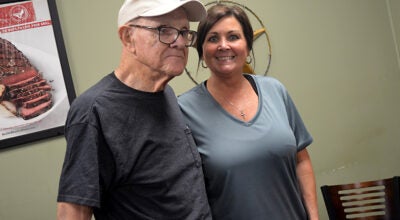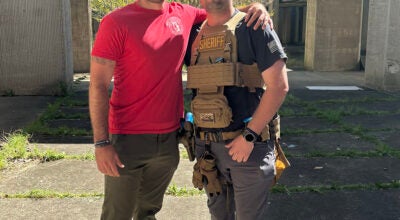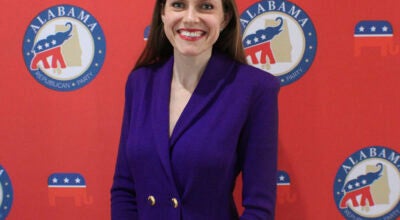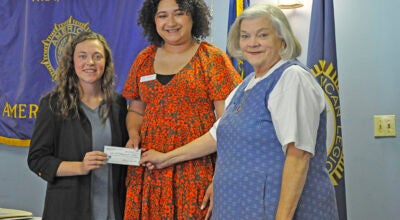Officials: Local holiday shopping boosts economy
Published 9:07 pm Friday, November 19, 2010
Holiday shoppers who stay in Pike County do more than stimulate the economy—they also support the arts, help local animals, preserve history and safeguard schools.
Officials are encouraging locals to browse shops during Open House this weekend and spend their money in Pike County this holiday season.
Through a breakdown of the 9 percent sales tax, County Administrator Harry Sanders explained how a few pennies here and there can bolster a population.
“The more we spend, the more comes back into our pockets,” he said.
Within the tax, 4 cents on every dollar goes to the state, 3 cents goes to the city of Troy—a portion of which is allotted for the hospital, Sanders said—and 2 cents provides for the County. Within the 2-cent county tax, 1.75 cents goes to schools, and just ¼ of a cent goes to the county commission. It’s those nearly unthinkably small sums that have helped keep the county and its services afloat during lean times, Sanders said.
In 2007, “the county’s financial situation was dire,” he said. At its bleakest, the county was headed toward cutbacks and reducing the number of employees throughout local businesses.
An increase in the sales tax was enough of a boost to put the county in a trajectory for 2009’s surplus, Sanders said.
“A one or two percent change can have a significant effect,” Sanders said.
Add to that a growing population and more shops, and the county can continue to prosper, he added.
“Troy does a good job of bringing in retail as well as industry,” Sanders said.
The tax also provides $150,000 a year to 20 local enrichment services, including the Pike Library Cooperative, the burgeoning Big Brothers and Big Sisters project, the Cultural Arts Center, the Pioneer Museum of Alabama, the Brundidge Historical Society and the Pike Animal Shelter.
At the Pike County Economic Development Corporation—another agency supported by sales taxes—President Marsha Gaylard said it’s not just tax cents on the dollar, but the dollars themselves, that keep Pike County’s economy moving.
“Dollars turn over so many times in a community,” Gaylard said.
In Pike County, a single dollar usually turns over about four times through businesses and individuals.
That is, when a shopper buys a holiday trinket from a small business, that money may go to pay an employee, and that employee may buy from another store, pay a bill or offer a donation to a service in Pike County.
“Just think of all the things you need to live,” Gaylard said
Every dollar that goes to neighboring counties during the holiday season is a dollar lost, she added. And with lost dollars come a smaller economy, and fewer large stores. “If they spend their money outside Pike County, they may never get the shopping here they want,” she said. “Our demographics don’t justify us having a large department store, but we’re working on that.”
But every dollar kept in the county, particularly during the holiday season, is a boost. “It keeps people in business,” she said. “Holiday shopping is usually the highest percent of income in retail.”
After Christmas, the bottom can drop out, Gaylard said, as many shoppers start watching their wallets come January.
“It’s a down time,” she said. “People have spent, and in January you’re paying bills, so there’s not a lot of shopping going on at that time.”
And Gaylard knows firsthand about the joys and perils of holiday shopping—she ran an interior design and gift shop of her own years ago, and said Christmas shopping set the tone for the entire year. “If we didn’t have a good Christmas, it was a tough struggle the rest of the year,” she said.
Which is why she often browses local stores before heading to other counties to shop for Christmas gifts, and why she encourages other shoppers to do the same.
“We understand there are some things you can’t buy here,” she said. “But [shoppers] would be amazed at some of the things you can find here. That’s why the businesses have open houses. They want them to come look.”





